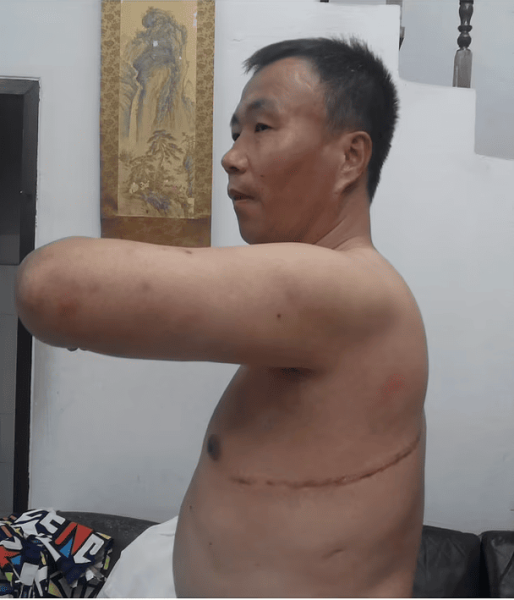China is expanding organ transplants in Xinjiang as voluntary donations in the region are very low.

China is dramatically expanding its organ transplant capacity in Xinjiang, sparking widespread criticism and concern from rights groups who suspect forced organ harvesting from prisoners of conscience. This comes despite the region’s extremely low voluntary organ donation rates and a history of allegations of such abuses.
The Daily Mail writes about this.
Although China announced in 2015 that it would stop using organs from executed prisoners, the announcement was not backed up by any legal changes. Organ harvesting from prisoners of conscience has never been explicitly banned. This may indicate that the expansion of transplant options is being used to harvest organs from people under duress.
Suspicious medical examinations and lack of consent
Rights activists say Uighur Muslims in Chinese camps are being forced to undergo medical tests, such as blood tests and ultrasounds, which appear to be to check whether their organs are suitable for transplant.
David Matas, a prominent lawyer and Nobel Peace Prize nominee who has long studied forced organ harvesting in China, says: “In Xinjiang prisons, there is no point in talking about voluntary consent.” He stresses that any claims of voluntary donation in such conditions should be questioned.
Professor Wendy Rogers of ETAC adds that “there is simply no justification for such an increase in transplant capacity given the official organ donation rate in the region, which is well below the national average.” Dr Maya Mitalipova, a geneticist who testified before the US Congress, believes it could be “industrial-scale organ harvesting under state control.”
The scale of expansion and international reaction
Beijing continues to deny the allegations, but the planned expansion includes nine hospitals in Xinjiang, seven of which will perform heart transplants, five lung transplants, four liver transplants, and five kidney and pancreas transplants by 2030. Critics say the network will far exceed local needs.
An estimated 60,000 to 100,000 transplants are performed in China each year, far more than the official donor system can handle. Since 2006, the main victims of forced organ harvesting have been followers of the Buddhist practice Falun Gong, and now the Uighur population is under threat.
The United Nations and several democratic governments have repeatedly expressed concern about credible reports of forced organ harvesting. In June 2021, 12 UN special rapporteurs and human rights experts sounded the alarm that members of minorities detained in China were being subjected to blood tests and organ scans without their consent, with the results being entered into a national organ allocation database.
Legislative actions and victims' testimonies
There is also political momentum in the United States, with the Falun Gong Protection Act introduced in March 2025 and the Stop Forced Organ Harvesting Act passed by the House of Representatives in May. Legislation banning cooperation with Chinese transplant facilities has also been introduced in Arizona, Texas, Utah, Idaho and Tennessee.
Activists are calling on the international community to press Beijing for full transparency over its expansion plans in Xinjiang.
One such account is that of Chen, a Falun Gong practitioner who spent several years in prison and claims to have been forcibly used as a multiple organ donor. During one of his detentions, Chen was taken to a hospital where he was forced to sign a consent form for surgery. When he refused, he was injected with an unknown substance and woke up with a huge cut in his chest. Medical tests in the US confirmed that segments of his liver and lungs had been removed. Photographs, apparently taken by a shocked nurse, show him unconscious and bedridden.

In March 2006, before another scheduled operation, Chen managed to make a daring escape from the hospital, eluding a guard. It was the beginning of a 14-year journey to freedom that took him to Thailand and then to the United States in July 2020, where he now serves as an advocate for ETAC.
Recall that Chinese Foreign Minister Wang Yi told the head of European diplomacy Kaja Kallas that Beijing cannot allow Russia to lose in Ukraine, as it fears that the US will then turn all its attention to Beijing.

